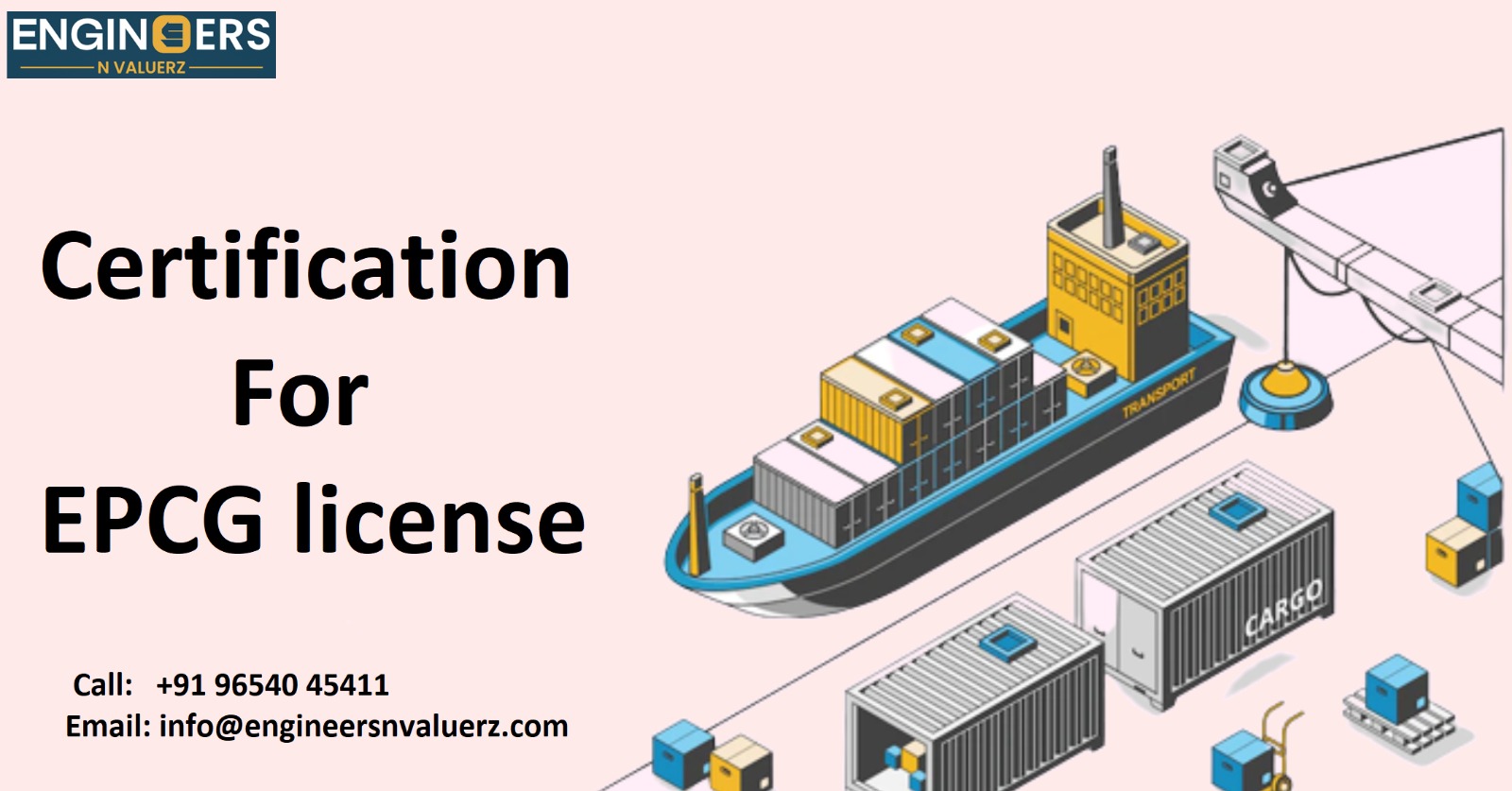Certification For EPCG license
The Export Promotion Capital Goods (EPCG) scheme is an export promotion program in India that allows authorized entities to import capital goods, including machinery, equipment, and technology, at concessional customs duties. This scheme is aimed at promoting investments in export-oriented industries. To obtain an EPCG license, businesses must follow a specific certification process. Here are the general steps:
- Eligibility Check: Ensure that your business is eligible to apply for an EPCG license. Generally, manufacturers, service providers, and agri-infrastructure providers are eligible.
- Registration: Register your business with the relevant authorities, such as the Directorate General of Foreign Trade (DGFT) in India.
- IEC (Import Export Code): Obtain an Import Export Code (IEC) if your business doesn't already have one. The IEC is a mandatory requirement for any business involved in import and export activities.
- Business Plan: Prepare a detailed business plan that includes the proposed export products, export markets, and projected export quantities.
- License Application: Submit an application for an EPCG license to the DGFT office. The application form, known as ANF 5A, is available on the DGFT website.
- Document Submission: Along with the application, submit the necessary documents, which may include:
- KYC (Know Your Customer) documents
- Importer Exporter Code (IEC) certificate
- Bank certificate of the applicant's financials
- Self-certified copy of the past three years' annual reports (if applicable)
- Detailed project report (DPR) for the project for which the capital goods are intended
- Proforma invoice for the capital goods to be imported
- Application Scrutiny: The DGFT office will review your application and documents to ensure compliance with the EPCG scheme's requirements.
- Issuance of EPCG License: If your application is approved, the DGFT office will issue an EPCG license, specifying the terms and conditions, including the export obligation, the value of capital goods to be imported, and the export product categories.
- Execution of Bond: You may be required to execute a bond with the DGFT office as part of the EPCG license process. The bond typically includes an undertaking to fulfill the export obligation.
- Import of Capital Goods: Once you receive the EPCG license, you can proceed with the import of capital goods, machinery, or equipment at the concessional customs duties as specified in the license.
- Fulfillment of Export Obligation: Over a certain period (usually 6 years), you are required to fulfill the export obligation, which involves exporting a specified value of goods/services. Failure to meet the export obligation may result in penalties or the revocation of the EPCG license.
- Export Obligation Discharge: To discharge the export obligation, you need to submit the relevant documents and certificates to the DGFT office, proving that you have met the export targets.
- Closure of the EPCG License: Once the export obligation is fulfilled, and all necessary documentation is submitted and verified, the EPCG license is considered closed.



